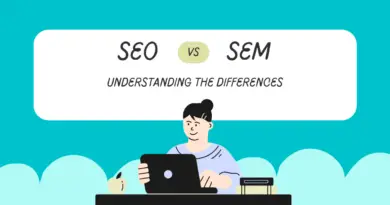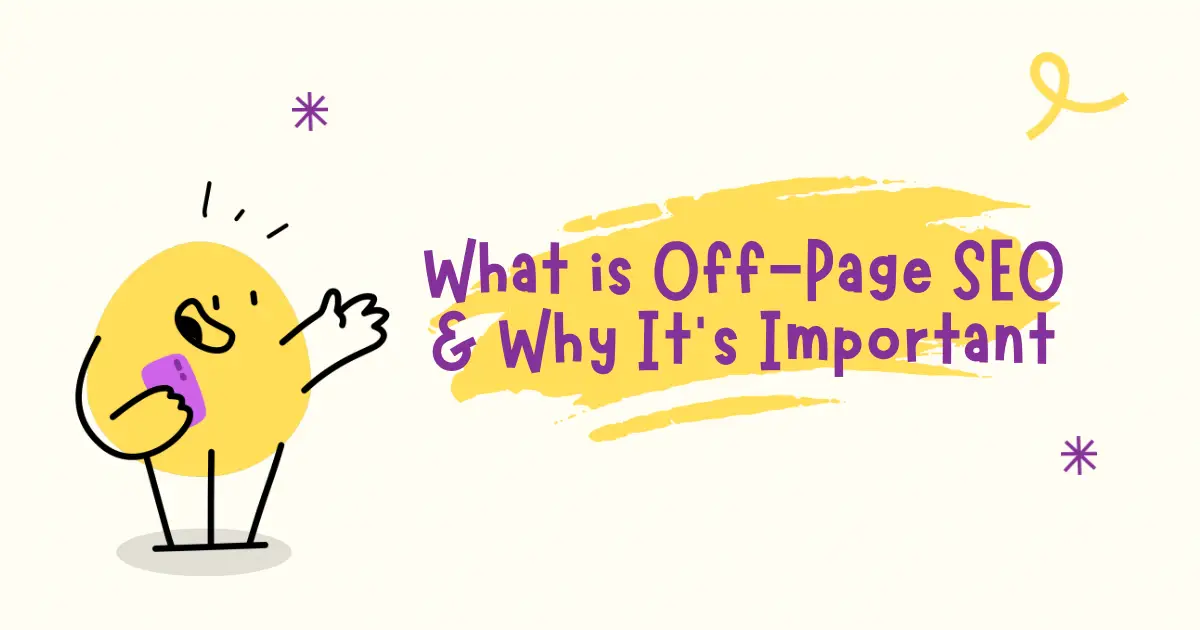Why SEO is Important for Websites and Businesses
Imagine this: You’ve built a fantastic website with stunning design and valuable content. But weeks pass, and you barely see any visitors. The issue? Your website isn’t optimized for search engines. This is where SEO (Search Engine Optimization) comes in—a powerful digital marketing strategy that ensures your website gets the attention it deserves.
What is SEO & Why Does It Matter?
SEO is the process of improving your website’s visibility on search engines like Google, Bing, and Yahoo. When people search for something related to your business, SEO ensures that your website appears at the top of the results. Without SEO, your site may remain hidden in the depths of search pages, missing out on valuable traffic.
The SEO Advantage: Why Businesses Need It
Every day, billions of searches happen on Google. If your business isn’t showing up for relevant searches, you’re losing potential customers to competitors. SEO is crucial for online success because it helps businesses rank higher, attract more visitors, and convert them into loyal customers.
For example, let’s say you own a small bakery. When people search for “best cupcakes near me” or “affordable birthday cakes,” you want your bakery’s website to appear at the top of the search results. Without SEO, your competitors—who have optimized their sites—will rank higher, taking away potential customers.
The Benefits of SEO for Businesses
Now that we understand why SEO is essential, let’s explore its benefits.

1. SEO Increases Website Traffic
One of the biggest advantages of SEO is its ability to drive organic traffic. Unlike paid ads, which require continuous spending, SEO generates consistent traffic over time.
For example, if you optimize a blog post titled “How to Bake the Perfect Chocolate Cake,” people searching for baking tips will find your website. This increases not just traffic but also engagement, leading to better conversions.
2. SEO Boosts Brand Visibility & Credibility
When your website appears on the first page of Google, it builds trust and credibility among users. People tend to click on top-ranking results, assuming they are more reliable. SEO helps businesses gain authority in their industry by ranking for relevant keywords.
Take the example of two law firms:
- Firm A invests in SEO best practices and ranks for “top divorce lawyer in New York.”
- Firm B doesn’t optimize its website and appears on page 3.
Which firm do you think will get more clients? Definitely Firm A, because higher rankings establish trust.
3. SEO Provides a High Return on Investment (ROI)
Unlike traditional marketing, SEO offers measurable and long-term benefits. A well-optimized website continues to bring in traffic without additional spending on ads.
For instance, an e-commerce store that ranks #1 for “affordable leather jackets” will consistently get clicks and sales without running costly ads. This is why businesses need SEO to maximize revenue while reducing marketing costs.
4. SEO Helps in Customer Acquisition
Most customers begin their buying journey with a Google search. Whether they’re looking for “best mobile phones under $500” or “top restaurants in Chicago,” SEO ensures that businesses are found at the right moment.
Example:
- A restaurant that ranks for “best Italian food near me” will attract local customers searching for dining options.
- A software company ranking for “best CRM for startups” will gain potential leads looking for business solutions.
This is why SEO and customer acquisition go hand in hand.
5. SEO Enhances User Experience (UX)
SEO isn’t just about keywords—it’s also about improving the overall user experience. Google favors websites that load fast, are mobile-friendly, and offer high-quality content.
SEO’s role in digital marketing extends beyond rankings. A well-optimized website with an easy-to-navigate structure and relevant content keeps visitors engaged.
Example:
- If an online store has slow-loading pages and broken links, visitors will leave, increasing the bounce rate.
- A fast-loading, mobile-responsive store with clear categories will encourage users to stay longer and make purchases.
Takeaway: A good SEO strategy improves both search rankings and user satisfaction.
How SEO Works: A Simple Breakdown
SEO has multiple components that contribute to better rankings. Let’s break them down:
1. Keyword Optimization
Identifying the right keywords, such as “SEO advantages,” “why SEO is crucial for online success,” and “SEO’s impact on business growth,” ensures that your content aligns with what users are searching for.
2. On-Page SEO
- Optimizing title tags, meta descriptions, and headers to include relevant keywords.
- Ensuring content is structured, easy to read, and valuable to the audience.
- Using internal links to guide visitors to related content.
3. Off-Page SEO
- Acquiring high-quality backlinks from reputable websites.
- Engaging in guest blogging and influencer collaborations to boost domain authority.
4. Technical SEO
- Improving website speed and mobile responsiveness.
- Using structured data and schema markup for rich search results.
- Fixing broken links and duplicate content issues.
SEO for Small Businesses: Why It’s a Game-Changer
Many small businesses believe they can’t compete with bigger brands in search rankings. However, SEO for small businesses levels the playing field. By focusing on local SEO, keyword optimization, and quality content, even a small business can outrank larger competitors.
For example, a local coffee shop can optimize its Google My Business profile, include customer reviews, and rank for “best coffee near me.”
Similarly, a freelance graphic designer can write blog posts on “how to create a stunning business logo” and attract potential clients.
Takeaway: Small businesses can thrive with SEO by targeting niche keywords and providing value to their audience.
Common SEO Mistakes & How to Avoid Them
Even with the best strategies, many websites struggle with SEO due to common mistakes.
- Keyword Stuffing: Overloading a page with keywords like “SEO benefits for websites” unnaturally can hurt rankings.
- Ignoring Mobile Optimization: Google prioritizes mobile-friendly websites.
- Neglecting Page Speed: Slow websites lose visitors quickly.
- Not Updating Content: Regular updates keep content relevant.
Final Thoughts: Is SEO Worth It?
Absolutely! SEO is a long-term investment that drives traffic, builds credibility, and increases sales. Whether you’re a small business, an entrepreneur, or a large corporation, SEO plays a crucial role in digital marketing success.
By implementing SEO best practices, focusing on user experience, and consistently creating valuable content, you can ensure that your website ranks higher, attracts more visitors, and ultimately, grows your business.
If you haven’t started investing in SEO yet, now is the time! 🚀
Key Takeaways
✅ SEO is essential for websites and businesses because it helps improve search engine rankings, increase organic traffic, and boost brand credibility.
✅ Higher rankings lead to better visibility and trust, making it easier for potential customers to find and engage with your business.
✅ SEO is cost-effective and provides long-term benefits, unlike paid ads that require continuous investment.
✅ Optimizing for the right keywords, such as “SEO benefits for websites” and “SEO’s role in digital marketing,” helps attract targeted visitors.
✅ Good SEO enhances user experience (UX) by improving website speed, mobile-friendliness, and content quality.
✅ Small businesses can compete with larger brands by focusing on local SEO and niche keywords.
✅ Common SEO mistakes to avoid include keyword stuffing, neglecting mobile optimization, ignoring page speed, and not updating content.
✅ SEO is a long-term strategy that requires continuous effort, but it delivers sustainable growth and customer acquisition over time.



